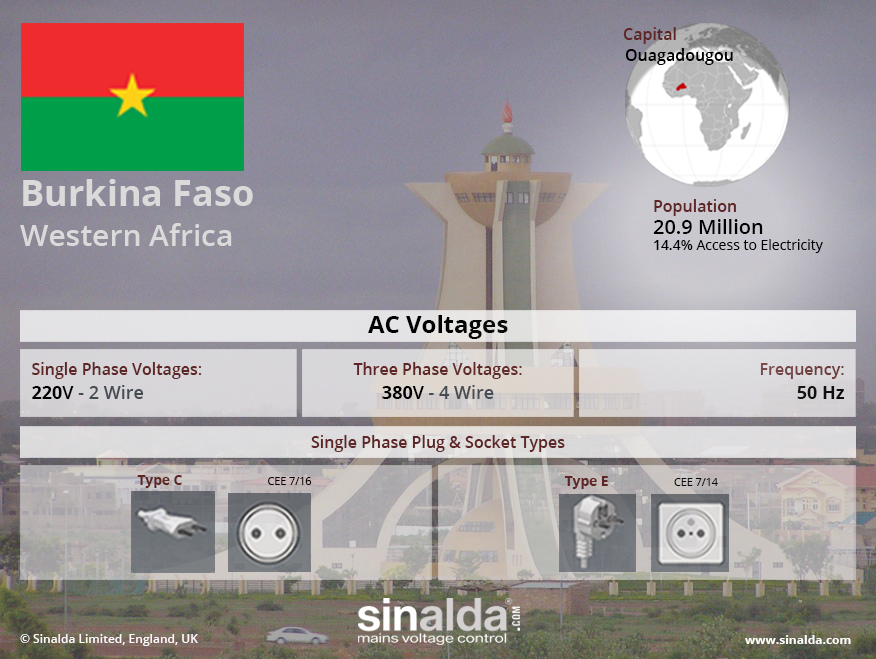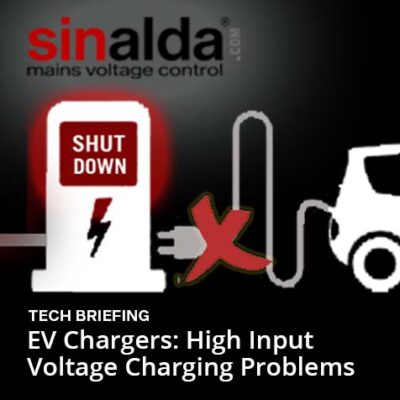Last Updated: 01 November 2021

Copyright 2021 Sinalda. Permission to use this image is granted subject to appropriate credit being given to www.sinalda.com as the source.
Power Quality in Burkina Faso
Burkina Faso, a landlocked country in West Africa, faces significant challenges in developing a reliable and accessible electricity supply network. The country has a rapidly growing population and a high demand for electricity to support economic development, social services and improve the quality of life for its citizens. However, Burkina Faso’s electricity infrastructure is still underdeveloped and struggles to meet the increasing demand. Frequent power outages and voltage fluctuations are common.
Power Sector in Burkina Faso
The national utility company, National Electricity Company of Burkina Faso (SONABEL), is responsible for generating, transmitting, and distributing electricity across the country. Despite its efforts, Burkina Faso continues to face several obstacles that hinder the development of a reliable electricity supply network.
One of the main challenges is the limited access to electricity. According to the World Bank, in 2021, only around 19% of Burkina Faso’s population had access to electricity, with rural areas being particularly underserved. This lack of access impacts various sectors, including education, healthcare, and economic activities.
The electricity generation in Burkina Faso heavily relies on thermal power plants, which use fossil fuels such as diesel and heavy fuel oil. This dependence on imported fossil fuels exposes the country to price volatility and supply disruptions. It also contributes to environmental challenges and the need for sustainable alternatives.
Burkina Faso has started investing in renewable energy sources, particularly solar and wind power, to address these issues. The country has abundant solar resources and has implemented projects like the 50MW Zagtouli Solar Power Station, which is one of the largest solar power plants in West Africa. These initiatives aim to diversify the energy mix, increase access to electricity, and reduce dependence on fossil fuels.
Despite these efforts, the reliability of the electricity supply network remains a significant challenge in Burkina Faso. Frequent power outages and load shedding are common, particularly during peak demand. Infrastructure limitations, insufficient transmission and distribution networks, and ageing equipment further contribute to these reliability issues.
Burkina Faso’s electricity infrastructure is susceptible to disruptions caused by extreme weather events and security challenges. These factors further impact the reliability and stability of the electricity supply network.
Burkina Faso is implementing various initiatives to improve the electricity supply network’s reliability. These include upgrading and expanding the transmission and distribution infrastructure, investing in new power generation capacity, and strengthening maintenance practices. Furthermore, regional cooperation and cross-border electricity trade are being explored to enhance energy security and stability.
Conclusion
In conclusion, Burkina Faso faces significant challenges in developing a reliable and accessible electricity supply network. Limited access to electricity, dependence on imported fossil fuels, and infrastructure limitations contribute to reliability issues. However, the country is diversifying its energy sources, promoting renewable energy, and improving infrastructure. With continued investments, technological advancements, and regional cooperation, Burkina Faso can make progress towards a more reliable and sustainable electricity supply network, supporting its socio-economic development goals and improving the lives of its citizens.
Share your Views and Experiences
Every reasonable effort is made to ensure that the information provided above is accurate. No guarantees for the accuracy of the information is made.
So we are able to keep the content updated, and actual on the ground experiences can be shared with others, please feel free to contact us.







